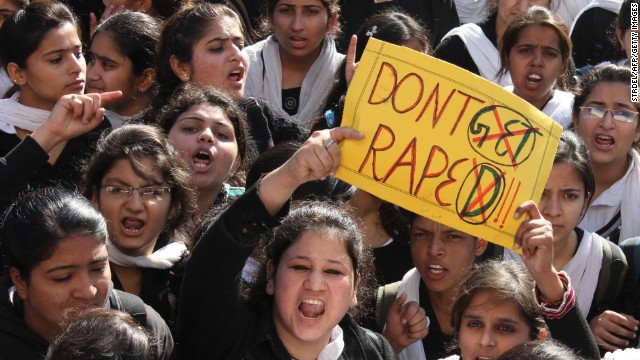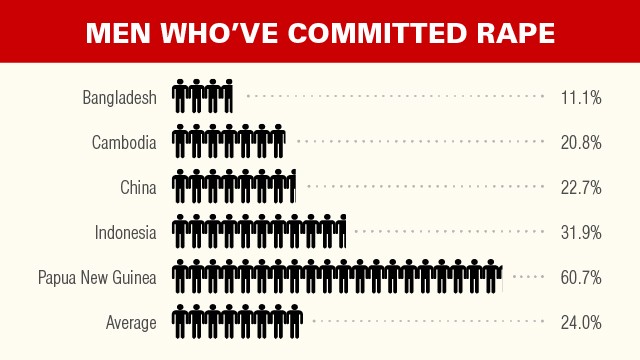

In the Lancet study, the majority of men who raped started in their teens, were unmarried, had low levels of education, were victimized as children, and were raised without a father present. Moreover, these men gave as their primary reason for rape a "sense of entitlement" (73%), followed by a search for "entertainment" (58%).
Gender inequality creates an environment where gender violence and male entitlement thrive, particularly in poor countries. The graph above shows that PNG has twice the number of rapists as the next closest country. In August, Medicins sans Frontieres stated that 70% of women in this country will be physically assaulted in their lifetime. Some estimates are even higher. Moreover, "PNG ranks 134 out of 148 countries in the 2012 UNDP Gender Inequality Index, and 156 out of 186 in the Human Development Index - the lowest in the Pacific."
While this week Indian courts sentenced to death four men convicted of gang raping a New Delhi woman last December, other women - and girls - continue to suffer, and also sometimes die, as result of cultural and political norms. Recently, a Dubai news agency reported that an eight-year old bride died as a result of vaginal tearing after sex with her 40 year-old husband. Indeed, the World Health Organization reports that 39,000 girls under 18 are married everyday. Many of these marriages are the result of poverty, but that cannot excuse a warped sense of male privilege that robs women of their dignity and their lives.
No comments:
Post a Comment